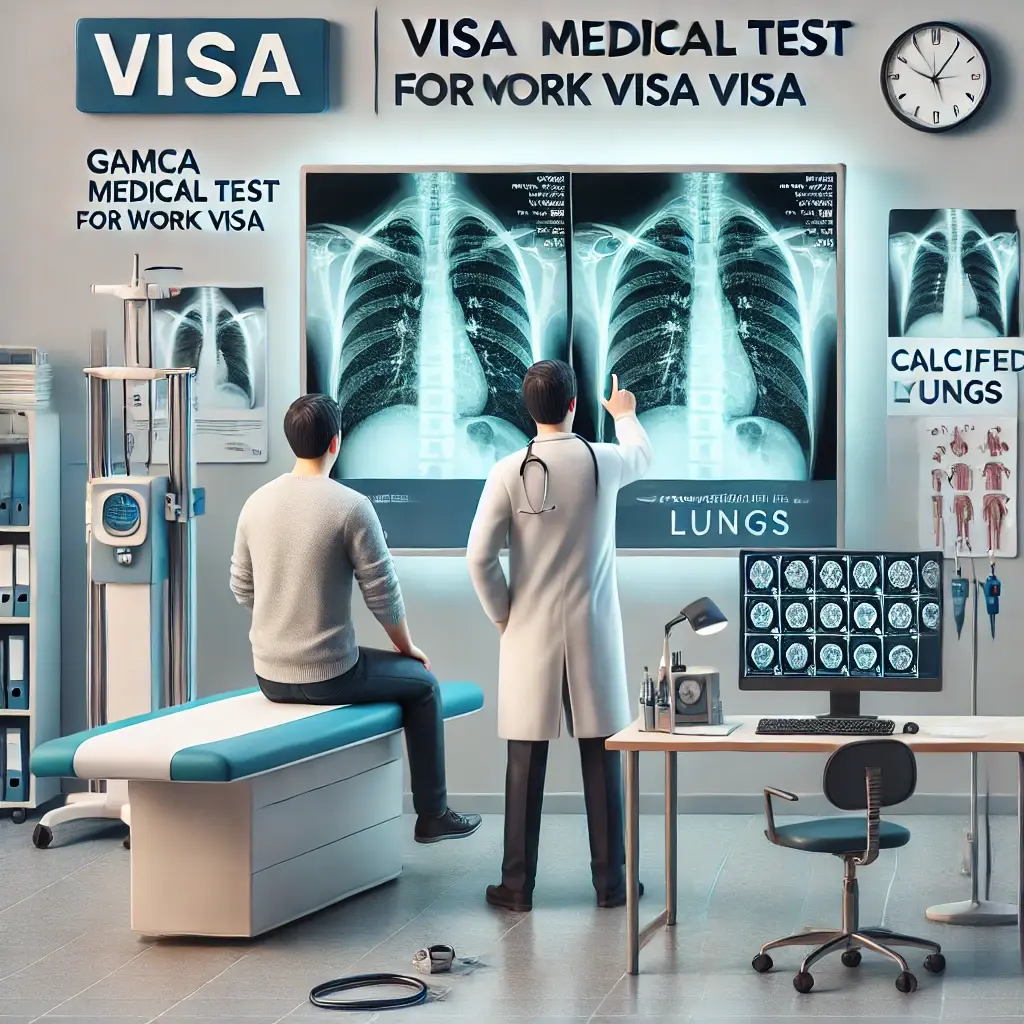
Why You Will Not Be Provided with a Visa on the Condition of Calcified Lungs
When applying for a work visa to Gulf Cooperation Council (GCC) countries, undergoing a medical examination is mandatory. One medical condition that can lead to visa rejection is the presence of calcified lungs. Even though this condition may not always cause health problems, it raises concerns for countries with strict health requirements, such as those in the GCC.
What Are Calcified Lungs?
Calcified lungs occur when calcium deposits build up in the lung tissue. These calcium deposits usually form as a result of past infections or inflammations. Conditions like tuberculosis (TB), fungal infections, or granulomas can cause calcifications to appear in the lungs. Even if the infection has healed, the scarring or calcifications remain, which can be detected during a chest X-ray.
Although calcifications are typically harmless and do not affect lung function, they can still indicate underlying health problems that might be a cause for concern when applying for a visa.
Why Are Calcified Lungs a Concern for Visa Approval?
One of the main reasons why calcified lungs can result in visa denial is their association with tuberculosis (TB), a contagious and potentially deadly disease. Even if a person no longer has active TB, the calcifications left behind from a previous infection can be seen as a risk. GCC countries, including Kuwait, Saudi Arabia, and the UAE, have strict public health regulations to prevent the spread of infectious diseases among their populations, particularly among migrant workers.
The presence of calcifications raises concerns about whether the person could have latent TB, which may reactivate under certain conditions, such as stress or weakened immunity. Therefore, GCC medical authorities often deny visas to applicants with calcified lungs to minimize the risk of disease outbreaks.
Health and Workplace Concerns
In addition to concerns about tuberculosis, GCC countries also focus on ensuring that workers are in good health and capable of performing their job duties. Workers with lung calcifications may have reduced lung capacity or respiratory issues, which could affect their performance in physically demanding jobs, especially in extreme weather conditions. This is particularly important in countries with high temperatures and harsh working environments, where lung-related conditions may worsen.
Employers in these countries prioritize hiring workers who are fit and less likely to experience health complications that could impact their productivity. As a result, visa applicants with calcified lungs are often deemed unfit for work, especially in industries that require physical labour.
Detection During the Medical Examination
During the GAMCA (Gulf Approved Medical Centers Association) medical test, chest X-rays are used to examine the lungs for any abnormalities, including calcifications. The presence of calcifications, especially in the upper regions of the lungs, is usually a sign of past tuberculosis or other infections. Once detected, the applicant may be required to undergo additional testing to rule out active TB or other health conditions.
In most cases, even if the additional tests confirm that the infection is no longer active, the visa application may still be denied as a precautionary measure.
Visa Denial Due to Public Health Regulations
GCC countries follow strict public health protocols, and individuals with any sign of a potentially infectious condition, such as calcified lungs, are likely to be denied a visa. The governments of these countries aim to protect their citizens and workers from communicable diseases, making it a priority to prevent individuals with health conditions like calcified lungs from entering.
Even though calcified lungs might not present an immediate threat, the risk of latent TB or future health problems means that visa applications are typically rejected when this condition is found.
Can You Reapply After Treatment?
If your visa application is denied due to calcified lungs, you may need to seek further medical treatment and get clearance before reapplying. However, because calcifications are permanent scars left by past infections, they will likely appear in future chest X-rays. This means that visa rejections based on this condition are often final unless you can prove that the calcifications are unrelated to any infectious disease.
Final
Calcified lungs, while often harmless, can still prevent you from obtaining a work visa to GCC countries due to concerns about public health and potential lung-related illnesses. Since the condition is linked to past infections like tuberculosis, countries with strict medical guidelines are cautious when granting visas to individuals with this condition. If you are denied a visa due to calcified lungs, it is essential to seek medical advice and address any underlying health issues before reapplying, but understand that the presence of calcifications will remain a significant hurdle in the visa process.
